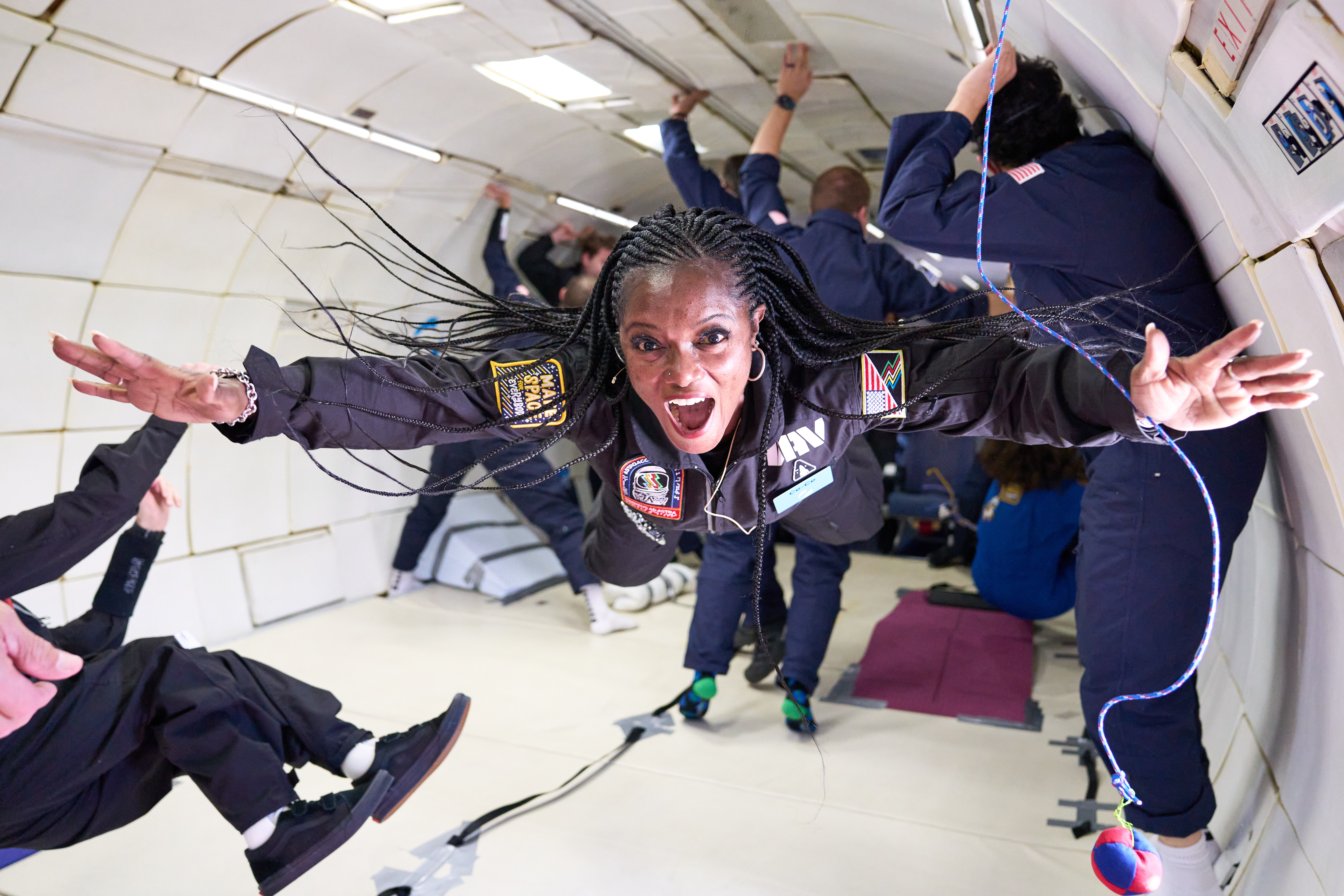16 disability ambassadors will take a Zero-G flight for inclusion
AstroAccess is hoping to redesign spaceflight to serve people with disabilities, starting with parabolic flights. Its December opportunity is the second dedicated flight for the organization.

Breaking space news, the latest updates on rocket launches, skywatching events and more!
You are now subscribed
Your newsletter sign-up was successful
Want to add more newsletters?

Delivered daily
Daily Newsletter
Breaking space news, the latest updates on rocket launches, skywatching events and more!

Once a month
Watch This Space
Sign up to our monthly entertainment newsletter to keep up with all our coverage of the latest sci-fi and space movies, tv shows, games and books.

Once a week
Night Sky This Week
Discover this week's must-see night sky events, moon phases, and stunning astrophotos. Sign up for our skywatching newsletter and explore the universe with us!

Twice a month
Strange New Words
Space.com's Sci-Fi Reader's Club. Read a sci-fi short story every month and join a virtual community of fellow science fiction fans!
Spaceflight is taking another giant leap for inclusion.
Sixteen ambassadors seeking to show that disability is not an obstacle when it comes to spaceflight will fly aboard a "Vomit Comet" type parabolic flight from Houston on Dec. 17 as part of the AstroAccess initiative which is looking to make spaceflight more inclusive.
AstroAccess, which seeks to expand the range of individuals participating in space science, engineering, and related fields, framed the flight opportunity as part of their effort at "reimagining accessible spaceflight design and redefining who can be an astronaut."
Related: Disability ambassadors successfully complete Zero-G flight
The flight, which will coincide with the 50th launch anniversary of the Apollo 17 mission (the last crewed moon landing to date), will be the second dedicated flight for AstroAccess. The initiative took its first batch of 12 parastronauts for a zero G ride in October last year on an AstroAccess-only flight.
"For the first time, the flight will have international Ambassadors from four countries and three continents — Australia, Brazil, Germany, and Spain — as part of the program's global expansion," AstroAccess officials wrote in a statement released in late September.
The mission comes at a time when space agencies around the world are looking to expand the range of people arriving in orbit. The European Space Agency is currently concluding a round of astronaut selection that, it says, will recruit the first people with disabilities into its core.
Breaking space news, the latest updates on rocket launches, skywatching events and more!
Meanwhile, commercial astronaut opportunities with companies like Axiom Space, and brief suborbital flights on Blue Origin and Virgin Galactic vehicles present new avenues for access for people who may not be able to follow the traditional astronaut route.
As a single example of how space is changing, the first individual with a prosthesis (Haley Arceneaux) flew into space aboard the SpaceX-run Inspiration4 mission, funded by billionaire Jared Isaacman of Polaris Dawn and the Polaris Program, in September 2021.
In May this year, the initiative flew their ambassadors on parabolic flights (that included other organizations) conducted by MIT and the Aurelia Institute, AstroAccess added.
The full list of spaceflyers is available in the release.
Follow Elizabeth Howell on Twitter @howellspace. Follow us on Twitter @Spacedotcom or Facebook.

Elizabeth Howell (she/her), Ph.D., was a staff writer in the spaceflight channel between 2022 and 2024 specializing in Canadian space news. She was contributing writer for Space.com for 10 years from 2012 to 2024. Elizabeth's reporting includes multiple exclusives with the White House, leading world coverage about a lost-and-found space tomato on the International Space Station, witnessing five human spaceflight launches on two continents, flying parabolic, working inside a spacesuit, and participating in a simulated Mars mission. Her latest book, "Why Am I Taller?" (ECW Press, 2022) is co-written with astronaut Dave Williams.
